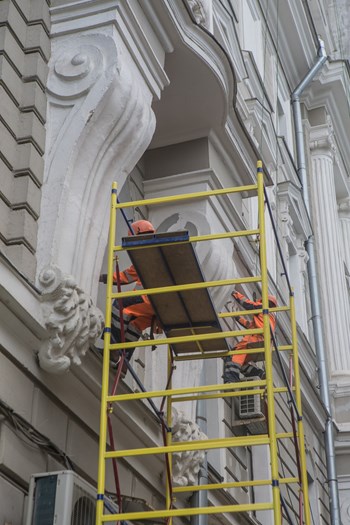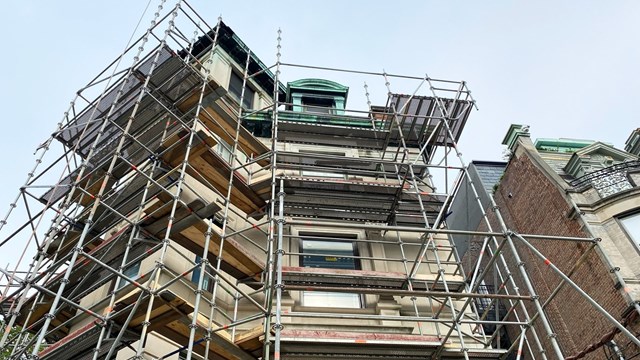
With safety and environmental regulations on the increase, co-op and condo communities in New York City face a growing slate of compliance work that must be completed in a timely manner in order to avoid fines and other costly penalties. Often these projects require the goodwill of neighboring buildings to provide temporary access through or around their property for engineers, contractors, and work crews. As with just about everything else in today’s hyper-litigious climate, a verbal go-ahead and handshake won’t cut it when it comes to moving equipment, materials, and personnel through lobbies, hallways, and other areas of a neighbor’s property, no matter how friendly your relationship may be. What’s needed is called an access agreement - the legal instrument governing the right of entry or use of an adjoining property.
What’s an Access Agreement?
“An access agreement is an agreement - commonly related to facade projects - by which a neighboring property grants access to their property for a specific time,” says William McCracken, an attorney and partner with Manhattan-based law firm Ganfer Shore Leeds & Zauderer LLP. “It’s not permanent, and is usually for a specifically negotiated period of time necessary to do the specific work. If you don’t have the agreement, your actions are a trespass.” An access agreement isn’t the same as an easement, “which is a permanent intrusion,” MacCracken explains. “If you have an easement to walk across a neighboring property, or for a wall or fence that encroaches on your property, it’s perpetual. ”
The Process
The dilemma many buildings face today is that they are required under law to do façade, brick or terracotta stabilization work in order to comply with Local Law 11, and must protect the neighboring building(s) while that work is carried out. There are strict deadlines for completion, and buildings must get permission from their neighbors to access adjoining areas during the project. The catch is, those neighbors can say no — and that presents a potentially huge problem. How do they do the work if the neighbor says no? A building could potentially be held hostage to get an agreement.
What to Do?
According to McCracken, “Once upon a time, Local Law 11 was less burdensome than it is today. It didn’t require lengthy projects, and inspections for completion could often be done from the street. In the past you’d call your neighbor, and it would be sort of a handshake; sure, just go ahead. Requirements have become more stringent over time, and arrangements have become more formal — and sometimes contentious — over time as well, and involve more provisions. It’s created more legal problems. Buildings required to do Local Law 11 work must do that work, but neighbors may, and sometimes do, demand all sorts of things to get an agreement, including access fees, reimbursement for legal costs, etc. It can be a really big number. It can be unreasonable.”
It’s difficult to maneuver, explains McCracken. “You can get around it by paying what’s asked, or you can go to court for an order granting permission under Section 881. That can take forever and can be expensive. As a practical matter, it’s not a good choice.”
Turning down a request for an access agreement — or making it financially painful — is also not very neighborly. Neighbors should remember that someday they may be in the same position, having to do exterior work and needing some neighborly cooperation. “We encourage our clients to work with neighbors,” says McCracken, to ‘pay it forward,’ so to speak. That’s not just goodwill - it’s good business.









Leave a Comment